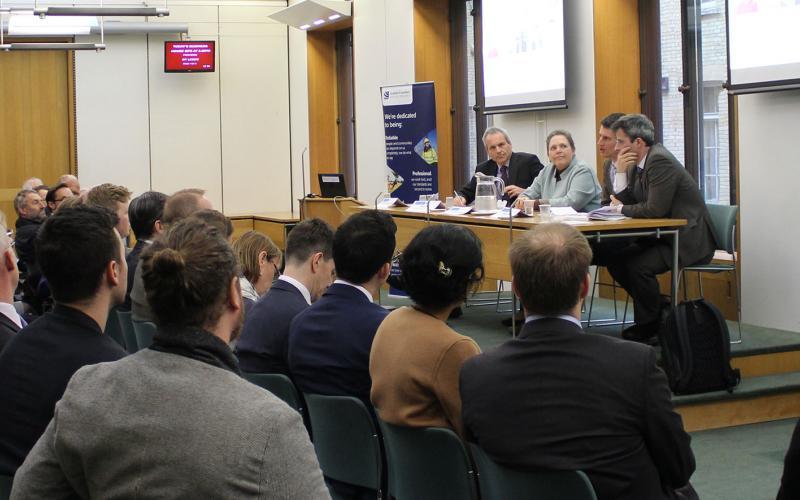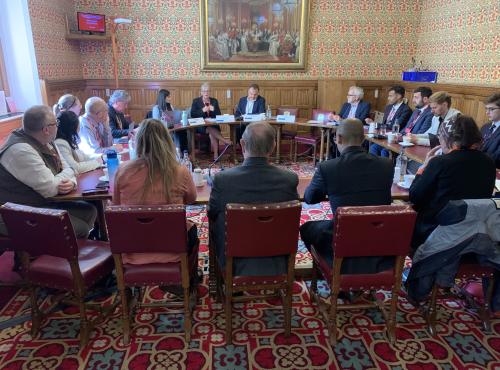The Future of Electric Vehicles in the UK
Carbon Connect, in collaboration with the All-Party Parliamentarty Design and Innovation Group (APDIG) and Scottish and Southern Electricity Networks, hosted a major event in the House of Commons on how the Government, industry and academia are working together to bring about a zero-emission revolution on Britain's roads.
Hosted by the former Minister of State for Transport, Baroness Kramer, over one hundred people from across the transport, energy and transport came together to discuss the latest developments for ultra-low emission vehicles, and how manufacturers and infrastructure are working with senior policy makers to improve the UK’s capacity to accommodate the next generation of electric cars.
Opening the session, Baroness Kramer noted the huge increase in the EV sector during the last three years, which has seen a remarkable surge in demand for electric vehicles in the UK. Between 2013 and 2017, new registrations of plug-in cars increased from 3,500 to more than 85,000.
The first speaker was Stewart Reid, Head of Asset Management and Innovation, Scottish and Southern Electricity Networks. Mr Reid spoke of an ambitious view by the energy supplier to introduce a “plug in overnight” concept for electric vehicle charging points. He added that the sector believes demand-side management will be crucial “at the beginning and end of the transition” to ensure that the power infrastructure of the UK is able to cope with the rise in electric vehicle ownership.
His views were echoed by Eduardo Mascarell of Nissan Europe. The car manufacturer has been at the centre of technological innovations in vehicle battery storage, with a vision of allowing electric cars to service as “mobile power sources”, able to redistribute power in of themselves.
Also on the panel was Dr Gregory Offer, Senior Lecturer in Electrochemical Engineering at Imperial College London. Dr Offer explained the latest research and developments in fuel cell technology, specifically with regard to how existing technologies are developed into being commercially viable, as well as the pressures with ensuring that the rise in autonomous vehicles does not come at the detriment of reducing global climate emissions.
The keynote speaker was John Hayes CBE ME, Minister of State at the Department of Transport. Mr Hayes discussed the ambitious program the Government is undertaking to increase the proportion of electric vehicles on Britain’s roads, as well as developing the infrastructure required to accommodate them. He also highlighted the need to create a “smart” approach to electric vehicle charging, where consumers are able to take advantage of times when energy demand is lower.
A full transcript of the Minister’s speech is available here.
In addition to the issues raised in the room, the House of Commons’ Business, Energy and Industrial Strategy (BEIS) Committee has recently launched a new inquiry, which will examine barriers to the development of the EV market and the support it needs to progress.
APDIG and Carbon Connect are grateful to Scottish and Southern Electricity Networks for sponsoring this event. A further write up is available here.




